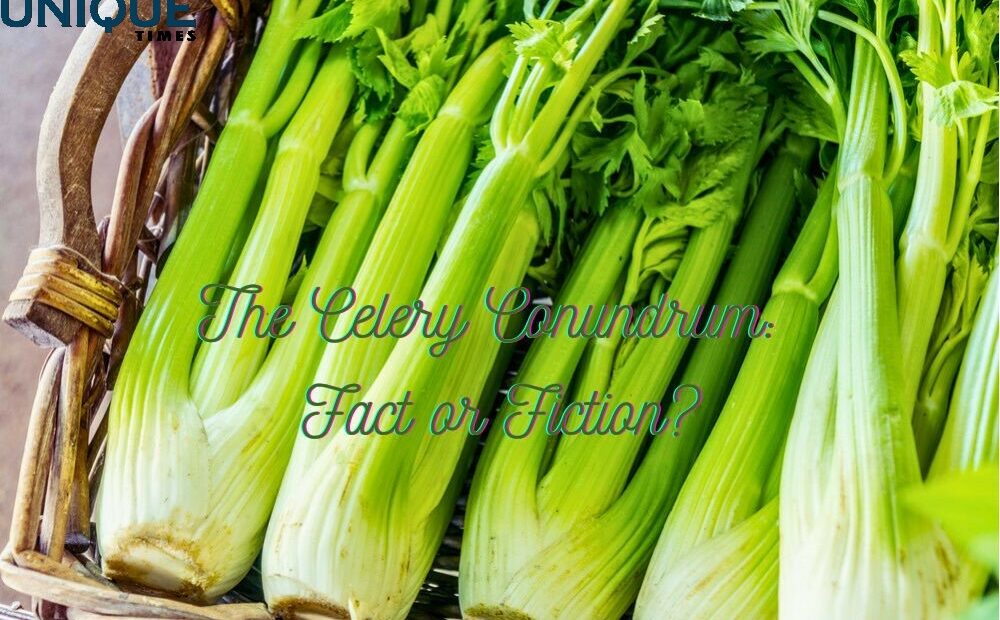The Celery Conundrum: Debunking the Myth of Negative-Calorie Foods

The pursuit of a healthy diet often leads us down intriguing paths, one of which involves the concept of “negative-calorie” foods. Among these, celery has garnered attention for its reputation as a food that burns more calories during digestion than it provides. In this blog, we dive into the science behind this notion and explore whether celery truly earns its title as a negative-calorie contender.
The Negative-Calorie Phenomenon: Fact or Fiction?
The concept of negative-calorie foods suggests that the energy expended during digestion exceeds the caloric content of the food itself, resulting in a net calorie loss. While it sounds enticing, the reality is more nuanced than this simplistic idea implies.
The Digestive Dance: Understanding the Thermic Effect
The thermic effect of food (TEF) is the energy expenditure that occurs during the digestion, absorption, and processing of nutrients. While it’s true that some foods require more energy to digest, the notion of negative-calorie foods oversimplifies the complex metabolic processes involved.
The Celery Paradox: Calories vs. Nutritional Value
Celery is indeed low in calories, making it a popular choice for those seeking to manage their calorie intake. However, it’s important to consider the broader nutritional context. Celery contains vitamins, minerals, and dietary fiber that contribute to its overall nutritional value, regardless of its calorie content.
Metabolic Reality: Balancing Expectations and Facts
The idea of negative-calorie foods raises intriguing possibilities, but metabolic processes are far from a one-sided equation. Our bodies are designed to extract energy from the food we consume, and the TEF, while significant, doesn’t equate to a free pass on caloric intake.
The Holistic Approach: Nutrition and Health
Rather than fixating on negative-calorie foods, a holistic approach to nutrition focuses on a balanced diet that provides essential nutrients for overall health and well-being. While celery’s low-calorie content might be appealing, it’s essential to incorporate a variety of foods to meet nutritional requirements.
Calories in Context: Making Informed Choices
The concept of negative-calorie foods might be captivating, but it’s essential to place it in context. Foods like celery can be part of a healthful diet, contributing to satiety and providing valuable nutrients. However, expecting them to single-handedly offset excessive caloric intake is an oversimplification.
Balance and Knowledge
The celery conundrum serves as a reminder of the importance of informed decision-making in our dietary choices. While celery might not be a magical negative-calorie solution, it can still be a valuable addition to a well-rounded diet. As we navigate the realm of nutrition, balance, variety, and an understanding of the intricacies of metabolism guide us toward making choices that promote our overall health and vitality.
Picture Courtesy: Google/images are subject to copyright








